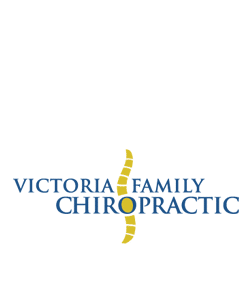Overtraining

Overtraining is exercising so much it exceeds the body’s ability to repair and regenerate. This can be from too much exercise, especially repetitive exercise, or from repeated periods of very strenuous activity, common in competitive athletes. The problem with this type of overtraining is that it actually leads to lowered performance. People often overtrain when coming off an injury as well. Injuries can affect our activity levels and once people feel better, they often begin activities at a similar exertion and frequency level as before their injury. The body’s fitness level (flexibility, strength, and cardiovascular) can decline rapidly with inactivity, so doing too much too quickly can lead to re-injury. The last type of overtraining is working hard without giving the body adequate rest.
Signs of Overtraining
The most common signs of overtraining are fatigue, a drop in performance (loss of strength, speed, or focus), lowered immunity, increased frequency of injury, and mental signs such as irritability, depression, or burnout.
Ways to Avoid Overtraining
I agree with strength and conditioning legend Matt Nichol that performance is simply a by-product of being healthy. Simply put, the body needs regular periods of rest both mentally and physically to be healthy. When we deny ourselves rest, consequences can be mild (e.g.: fatigue) or more serious (e.g.: performance drop, injury, sickness, disability).
There is no simple recipe to follow to avoid overtraining because everyone is unique. For instance, an young competitive athlete has a greater ability to regenerate and tolerate vigorous activity than someone middle aged and sedentary.
Treatment and Prevention for Overtraining
- Get enough rest. This means time spent not exercising or doing so gently. It is generally recommended to take two days a week to rest. On these rest days, do things you enjoy such as reading, watching movies, spending time with others, travelling, or getting into nature.
- Get adequate sleep. Seven to nine hours is ideal for most people. Quality sleep is important.
- Work out and/or train appropriate for your body, age, and goals. Whether you are coming off an injury or just starting to work out, start gradually, moderating the intensity, load, frequency, and duration. For instance, someone used to running 5km in 30 minutes that hasn’t run for a year might try a walk/run ratio of 1:2 – one minute of running at a mild to moderate intensity followed by two minutes of walking.
- Get adequate quality nutrition: adequate healthy fats such as omega-3’s, lots of fruits and vegetables, quality protein, and enough water. Not everything consumed needs to be perfect, but try to avoid excess refined, processed, and high sugar content foods.
- Whether you are a competitive athlete, in school, or working, take vacations. Time away is needed for health and performance. Four to eight weeks per year is recommended but not always possible. Make sure that at least some time is spent away to recharge.
- Listen to your body. Be mindful of how you feel and find out what your needs are so you can properly address them, but understand they will change over the course of life. Professions such as chiropractic, massage, and even counselling are wonderful at treating problems and helping keep us at our best.
Dr. Cale Copeland BSc.N, D.C.
Victoria Family Chiropractic
3200 Shelbourne St. #203 (250) 592 5553
www.vfchiro.com
OFFICE HOURS
Monday
7:30am - 1:00pm
Tuesday
1:00pm - 7:00pm
Wednesday
7:30am - 1:00pm
Thursday
1:00pm - 7:00pm
Friday
7:30am - 1:00pm
Saturday
Closed
Victoria Family Chiropractic
3200 Shelbourne Street Suite 203
Victoria, BC V8P 5G8
(250) 592-5553



